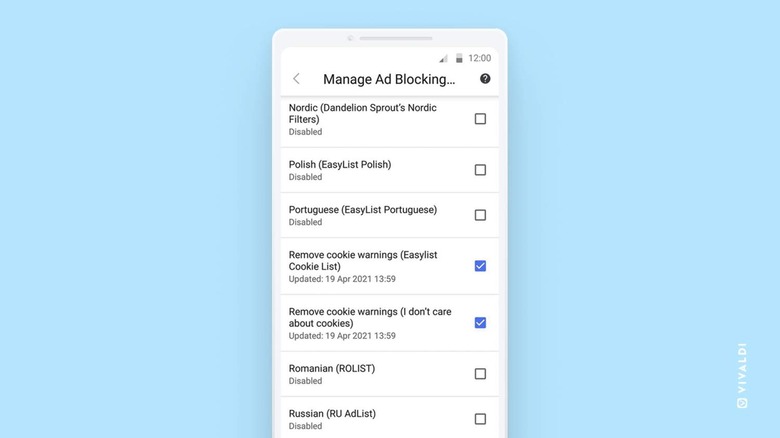Vivaldi Browser On Android Lets You Automatically Block Cookie Requests
The European Union's GDPR was a double-edged sword that protected privacy not just for the region but for the rest of the world but at the expense of some inconveniences. Website administrators had a hell of a time implementing compliance and users now get welcomed by messages asking their permission to enable cookies. These can get pretty annoying or even downright confusing which is why Vivaldi is bringing its Cookie Crumbler feature to Android to pretty much block most of those cookies and their dialogs altogether.
It is, of course, a good thing to ask users whether they want to have cookies track their visit but, unlike Apple's new App Tracking Transparency, the permissions for these aren't exactly trivial. Unless you're a more seasoned computer user, you are more likely to just allow all those cookies, which pretty much negates the purpose of letting users protect themselves online.
Vivaldi's solution to the confusion and interruption is to just hide those dialogs and block cookies at the same time. This feature is part of its Cookie Crumbler that it introduced on its desktop browser and is now arriving on Android. It is part of the browser's tracking protection features, which is why it is found under those related settings, in case you want to disable it.

You might actually be forced to disable it on sites that require cookies to even work. Vivaldi also warns that there will be some sites that seem to work around cookie blockers so it might not work 100%. That said, its blocking system is based on third-party lists that continue to grow as more and more sites with cookies are added to it.
The update to Vivaldi on Android also includes cookie-unrelated new features. Vivaldi can now use a language different from what Android is set to for those that have to juggle multiple languages. The update also brings back the Start Page icon that was removed when Vivaldi switched to a bottom location for its address bar and tabs.
